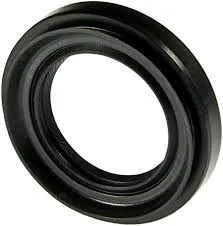8 月 . 09, 2024 04:10 Back to list
Understanding the Importance of Hydraulic Oil Seals in Modern Industrial Applications and Machinery Performance
Understanding Hydraulic Oil Seals Importance and Applications
Hydraulic systems are integral to various machinery and equipment across multiple industries, including construction, manufacturing, automotive, and aerospace. At the heart of these systems lies a critical component known as hydraulic oil seals. These seals play a fundamental role in ensuring the efficiency, reliability, and longevity of hydraulic systems.
What Are Hydraulic Oil Seals?
Hydraulic oil seals are specialized sealing devices designed to retain hydraulic fluids within a hydraulic system while preventing contaminants from entering. Typically made from materials such as rubber, elastomers, or composites, these seals conform to dynamic and static conditions within hydraulic cylinders and pumps, maintaining optimal pressure levels and fluid integrity.
The primary function of hydraulic oil seals is to minimize leakage. In hydraulic systems, the pressure is often exceptionally high, and even a small leak can lead to a significant drop in performance and efficiency. Furthermore, leaks can create safety hazards and environmental issues, making robust sealing solutions essential.
Types of Hydraulic Oil Seals
There are several types of hydraulic oil seals, each designed for specific applications and conditions
1. Rod Seals These seals are employed in hydraulic cylinders to prevent the hydraulic fluid from leaking around the piston rod. They are engineered to withstand dynamic movement and provide a reliable seal under varying pressure conditions.
2. Piston Seals Piston seals are located inside the hydraulic cylinder and help contain fluid pressure while allowing the piston to move smoothly. Their design is critical for achieving high performance in hydraulic systems.
3. Static Seals Unlike dynamic seals that need to accommodate movement, static seals are used in stationary parts of a hydraulic system. They prevent fluid leaks between two static surfaces.
4. Wiper Seals These seals are designed to keep contaminants out of the hydraulic system by wiping the rod as it extends and retracts. They play a vital role in protecting hydraulic components from external debris.
Key Considerations in Oil Seal Design
hydraulic oil seals

The design of hydraulic oil seals is influenced by several factors, including
- Pressure and Temperature Resistance Hydraulic seals must withstand various pressures and temperatures. The materials used should be compatible with the fluids employed in the hydraulic system and be able to maintain their integrity under extreme conditions.
- Compatibility The seal material must be compatible with the hydraulic fluid, ensuring that chemical interactions do not degrade the seal's performance.
- Performance The ability to handle wear, fatigue, and compression is crucial. High-quality seals can significantly reduce the frequency of maintenance and replacements, leading to cost savings over time.
Applications of Hydraulic Oil Seals
Hydraulic oil seals are ubiquitous in various applications, including
- Industrial Equipment Machinery such as forklifts, cranes, and press machines rely on hydraulic systems that incorporate these seals for optimal performance.
- Automotive Industry Vehicles utilize hydraulic braking systems and power steering assemblies that depend on reliable fluid sealing.
- Aerospace Hydraulic systems in aircraft require seals that can perform under high pressure and temperature fluctuations, ensuring safety and reliability.
- Agriculture Agricultural machinery like tractors and harvesters utilize hydraulic systems to improve efficiency, relying on effective sealing solutions.
Conclusion
In summary, hydraulic oil seals are vital components that contribute significantly to the effective functioning of hydraulic systems. Their ability to prevent leaks and protect against contaminants ensures that machinery operates smoothly and efficiently. As industries continue to evolve, the demand for high-quality hydraulic oil seals will remain paramount, underscoring their importance in modern engineering and manufacturing practices. Maintaining and selecting the right hydraulic seals can lead to increased productivity, reduced downtime, and enhanced equipment lifespan, making them indispensable in today's industrial landscape.